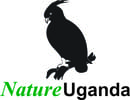Restoring and conserving degraded and fragile ecosystems for improved livelihoods among the refugee and host communities of the West Nile and the Mid-Albertine Rift regions
Purpose of the Project: To improve livelihoods and ecosystems resilience to impacts of refugees and climate change to the refugee hosting landscapes.
The Project is mainly on the restoration and conservation of forests, wetlands, riverines, and savannah woodlands with three specific objectives:
Project objectives
- Restoring degraded forests, wetlands, savannah woodlands & other fragile ecosystems impacted by human activities in the refugee hosting communities.
- Support landowners in host communities to establish agroforestry enterprises and adapt Sustainable Land Management (SLM) practices. The aim is to build agriculture resilience in the refugee host communities by enhancing adoption of Sustainable Land Management (SLM), Climate Smart Agriculture (CSA) practices (minimum tillage technologies) Agroforestry (AF) Enterprises and woodlot establishment.
- Build capacity of Local Governments (LG), Civil Society Organisations (CSOs), private sector companies and local communities for effective uptake of climate change mitigation and environmental conservation measures.
The Project is under implementation in the West Nile Region in the districts of Terego and Yumbe; and in the Mid Albertine Rift Region in the districts of Kikuube, Kyegegwa and Kamwenge. The four-year project is being implemented in a 15 km radius from the refugee settlements of Rwamwanja (Kamwenge district), Kyaka 2 (Kyegegwa district), Kyangwali (Kikuube district, Rhino Camp and Bidi Bidi (Terego and Yumbe districts).
Project implementation is by a consortium comprised of Uganda Biodiversity Fund (UBF), NatureUganda (NU), Wildlife Conservation Society (WCS), and Ecological Christian Organization (ECO). In preparation for successful exit, each implementer is expected to partner with the District Local Governments (DLGs), identified CSOs operating in the project areas, and the targeted ecosystems Responsible Bodies (RB) to integrate the project interventions in their plans.
NatureUganda has sites in 3 districts of Kyegegwa, Kamwenge and Terego. The selected implementation sites include:
- Sites in WestNile Region (all sites are in Terego District)
- Yelulu Wetland
- Otumbari Local Forest Reserve
- Sites in Kyegegwa (River Katonga Upper Catchment) include;
- Komuchwezi
- Kyakatwanga and Oruchinga in Sweswe
- Sites in Kamwenge (River Katonga Upper Catchment)
- Kajororo
- Rushango
Related videos
Apiary Project Beneficiaries





